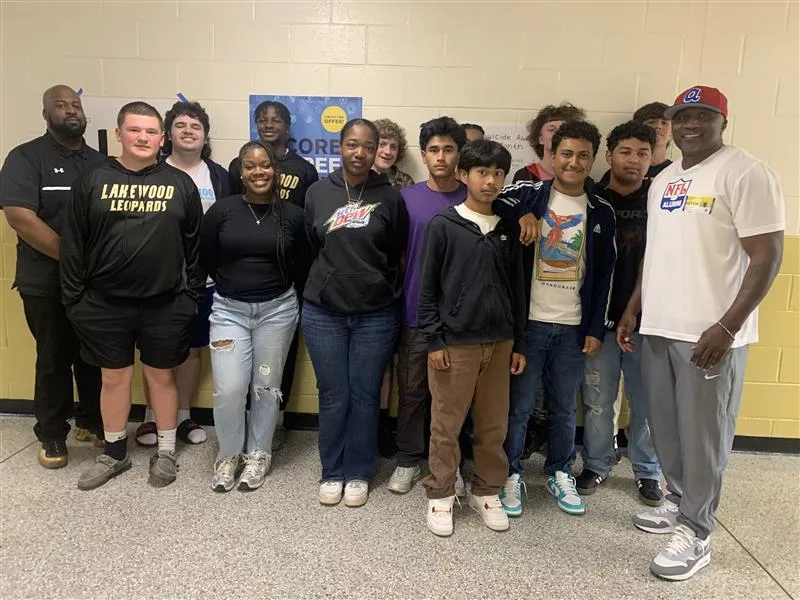February is Career and Technical Education (CTE) month, a time to celebrate the impact of CTE on the lives and futures of students and highlight the incredible variety of fields it covers. CTE programs provide students with hands-on experience in healthcare, engineering, information technology, culinary arts, construction, and so much more. By engaging in these specialized classes, students not only learn important technical skills, but also gain real-world knowledge that makes them highly marketable in today’s competitive job market.
“CTE classes give students foundational knowledge and the expectations about the world of work, but it gives them a chance to immerse themselves into complex careers and decide if it’s something they want to do in the future,” said Joan Hoffman, CTE Educator and Buncombe County Association of Educators Vice President. “Sometimes trying a class out and learning it's not for you can be just as valuable as finding your calling. CTE classes provide industry -level education that’s free to our middle and high school students.”
For example, students can create a short animated film, where they develop technical skills in animation software and hone their storytelling, editing, and sound design abilities. These projects often require critical thinking and problem-solving, as students must troubleshoot issues, make adjustments, and improve their work. The process of learning through creation bridges the gap between theory and practice, giving students a deeper understanding of how their newfound skills can be applied in various professional fields.
Quote byBrandon Powell, CTE Educator and NCAE Member

Brandon Powell, a dedicated Career and Technical Education (CTE) teacher at Lakewood High School in Sampson County creates an environment that allows students to develop practical and social skills. This supportive environment allows students to step outside of their comfort zones and take on leadership roles, whether by guiding peers through a project, presenting their work to the class, or taking the initiative to solve problems independently.
“In my fashion merchandising entrepreneurship class, we teach just a variety of different interpersonal skills, hands-on skills that I think are beneficial in despite or regardless of the path that they choose,” said Powell.
For many students, they are able to develop their confidence and personalities by learning new skills. Powell has seen students' self-assurance and leadership skills grow through taking his class. As they acquire technical knowledge and tackle increasingly complex tasks, they begin to realize their potential, boosting their overall self-esteem.
“I had a student who's probably one of my best t-shirt makers. She came in as a freshman. She was very introverted. She really embraced the hands-on activity with the cricket machine and the heat presses and designing the shirts. It helped her to open up. I gave her leadership opportunities because she was so good at it, and her parents told me, after Christmas, instead of asking for anything else, she asked for a cricket machine for Christmas,” said Powell.
Career and Technical Education also offers educators a valuable opportunity for professional development, enabling them to stay at the forefront of industry trends and advancements. As the workforce continues to evolve with new technologies, methodologies, and demands, CTE educators can enhance their own expertise. These learning experiences allow teachers to acquire new skills and gain a deeper understanding of the tools and techniques that are shaping modern careers.
Joan Hoffman has learned many new skills over the year including drone technology.
“We're learning really great software programs. We're learning about 3D printing. I've taught drone technology, and that is an incredible field that's really growing every day,” said Hoffman.
Career and Technical Education classes offer students an opportunity to have a jump start on their lives after graduation, whether they choose to enter the workforce immediately, pursue further education, or explore entrepreneurship.
According to Hoffman, her students show her appreciation for the new skills they’ve learned. “When they come back to see me, that's what they're really grateful for. They can do really cool stuff.”


